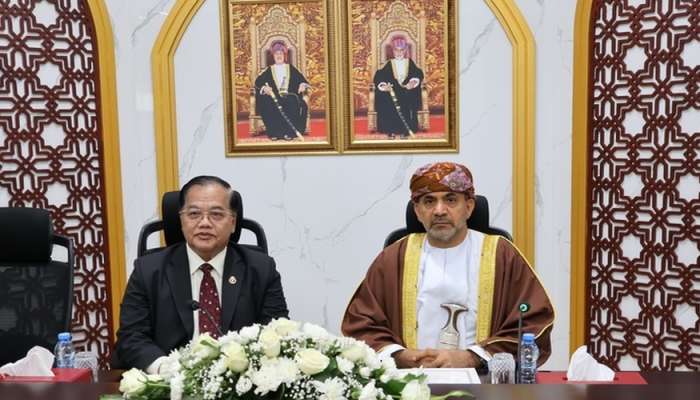The Sultanate of Oman and the Kingdom of Cambodia are looking to strengthen their bilateral cooperation in the field of food security. This was discussed during a meeting between Dr. Saud Hamoud Al Habsi, Minister of Agriculture, Fisheries and Water Resources of Oman, and Dr. Osman Hassan, Senior Minister of Cambodia. They discussed investment opportunities and ways to exchange expertise to enhance food security in both countries.
During the meeting, both parties explored potential areas of collaboration to ensure food security for their populations. This includes sharing knowledge and resources to improve agricultural practices and expand the production of essential food items. By working together, Oman and Cambodia aim to address challenges related to food security and achieve sustainable development in the agricultural sector.
The Ministry of Agriculture, Fisheries, and Water Resources in Oman is committed to fostering partnerships with other countries to enhance food security. By collaborating with Cambodia, Oman can benefit from their expertise in certain areas, while also sharing their own knowledge and technologies. This exchange of information will ultimately benefit both countries and contribute to the overall food security goals in the region.
In addition to discussing cooperation in food security, the meeting also touched upon other potential areas of collaboration between Oman and Cambodia. This includes exploring new investment opportunities in the agricultural sector and identifying ways to support each other in achieving sustainable development goals. By working together, both countries can leverage their strengths to overcome challenges and improve food security outcomes.
Overall, the meeting between the Sultanate of Oman and the Kingdom of Cambodia signals a commitment to strengthening bilateral cooperation in the field of food security. By exploring opportunities for collaboration and sharing expertise, both countries aim to address common challenges and achieve sustainable development in the agricultural sector. This partnership has the potential to benefit both nations and contribute to long-term food security goals in the region.











